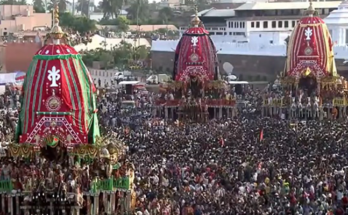Kathmandu: In a dramatic turn of events, KP Sharma Oli is set to assume the role of Nepal’s Prime Minister once again, following a significant midnight agreement between the Nepali Congress and the Communist Party of Nepal (Unified Marxist-Leninist) (CPN-UML).
Reports from Kathmandu reveal that a late-night pact between Nepali Congress leader Sher Bahadur Deuba and CPN-UML Chairman KP Sharma Oli has outlined a new political arrangement. According to the terms of the deal, Oli will serve as Prime Minister for the next 18 months, after which Deuba will take over the position for the remainder of the term leading up to the general elections scheduled in three years.
Under this agreement, the CPN-UML will not receive the Home Ministry but will manage the governments in the provinces of Koshi, Lumbini, and Karnali. Conversely, the Nepali Congress will oversee the Bagmati, Gandaki, and Far-Western provinces, while Madhesh-based parties will govern Madhesh Province. Additionally, the deal includes a new distribution of ministerial positions, effectively dismantling the current government formed on March 4.
The agreement also signifies a major shift as it excludes the incumbent government led by Pushpa Kamal Dahal, also known as Prachanda. Prior to finalizing the deal, leaders from the new coalition briefed President Ram Chandra Paudel on the upcoming changes in the alliance’s structure.
Despite the significant political shift, the ruling party has maintained that the current coalition remains unchanged. Minister Rekha Sharma, citing Prime Minister Dahal, stated, “The reports in the media are just rumors. We are still in dialogue with our coalition partners.”
Sharma further quoted Dahal as saying, “I have been in regular dialogue with UML Chairman Oli. We are in discussions on all matters. The ongoing talks are just rumors. This coalition will last long.”
As the political landscape evolves, all eyes will be on how this new arrangement will shape Nepal’s future governance.




